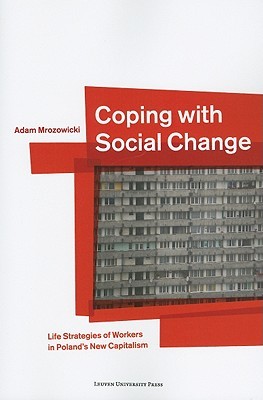
- We will send in 10–14 business days.
- Author: Adam Mrozowicki
- Publisher: Leuven University Press
- ISBN-10: 9058678652
- ISBN-13: 9789058678652
- Format: 15.5 x 22.6 x 2 cm, softcover
- Language: English
- SAVE -10% with code: EXTRA
Reviews
Description
Manual workers in Central and Eastern Europe are often perceived as disoriented victims of postsocialist transformation. But how can such assumptions--by sociologists as well as the general public--explain the diversity of the actual ways that workers cope with social change in the new capitalist reality?
To address this question Adam Mrozowicki turns to workers themselves, to their life strategies and personal experiences. He reconstructs the processes of adapting to and resisting structural changes in working-class milieus in Silesia, an industrial region of Poland. Through an in-depth analysis of 166 personal interviews with blue-collar workers, Mrozowicki reaches general conclusions. The workers rarely resemble the passive puppets of historical forces. Their ability to reflect upon their lives, upon their deeply ingrained moral ethos, and upon their social circumstances emerge as the foundation of their efforts to overcome socially imposed limitations.Coping with Social Change is essential not only for readers interested in postsocialism and working-class theory, but also for anybody inclined to think critically about workers' empowerment in late capitalist societies.
EXTRA 10 % discount with code: EXTRA
The promotion ends in 20d.09:15:54
The discount code is valid when purchasing from 10 €. Discounts do not stack.
- Author: Adam Mrozowicki
- Publisher: Leuven University Press
- ISBN-10: 9058678652
- ISBN-13: 9789058678652
- Format: 15.5 x 22.6 x 2 cm, softcover
- Language: English English
Manual workers in Central and Eastern Europe are often perceived as disoriented victims of postsocialist transformation. But how can such assumptions--by sociologists as well as the general public--explain the diversity of the actual ways that workers cope with social change in the new capitalist reality?
To address this question Adam Mrozowicki turns to workers themselves, to their life strategies and personal experiences. He reconstructs the processes of adapting to and resisting structural changes in working-class milieus in Silesia, an industrial region of Poland. Through an in-depth analysis of 166 personal interviews with blue-collar workers, Mrozowicki reaches general conclusions. The workers rarely resemble the passive puppets of historical forces. Their ability to reflect upon their lives, upon their deeply ingrained moral ethos, and upon their social circumstances emerge as the foundation of their efforts to overcome socially imposed limitations.Coping with Social Change is essential not only for readers interested in postsocialism and working-class theory, but also for anybody inclined to think critically about workers' empowerment in late capitalist societies.


Reviews